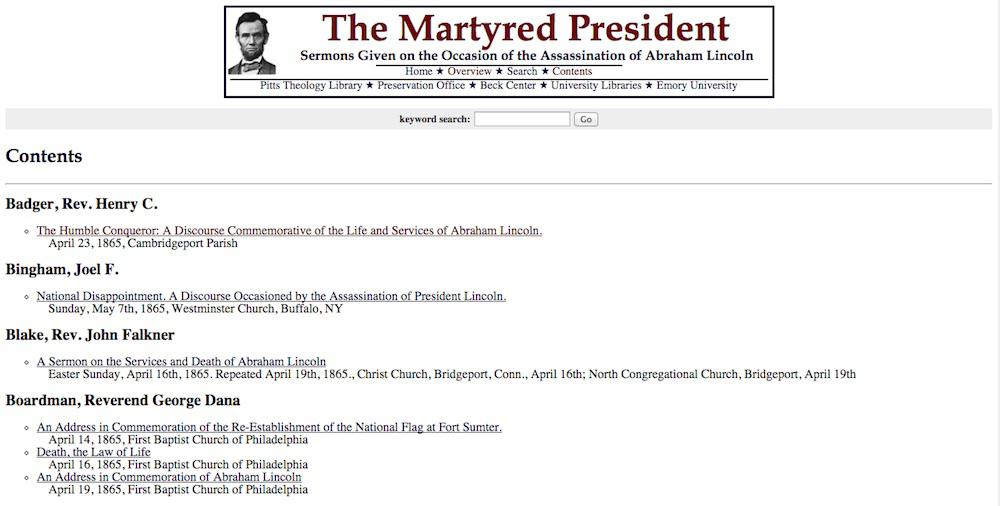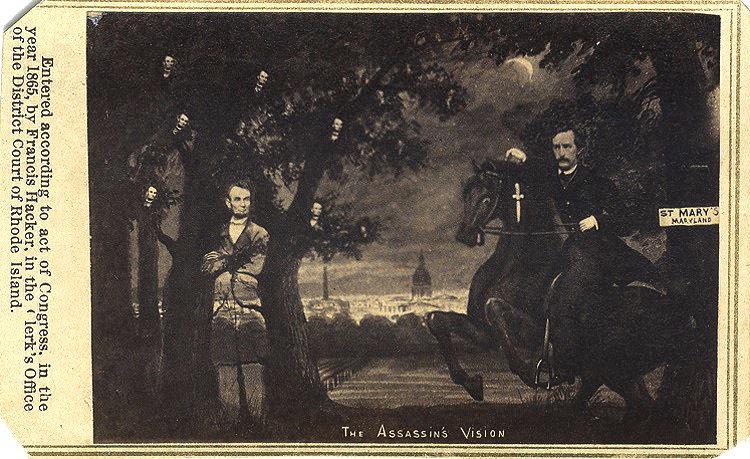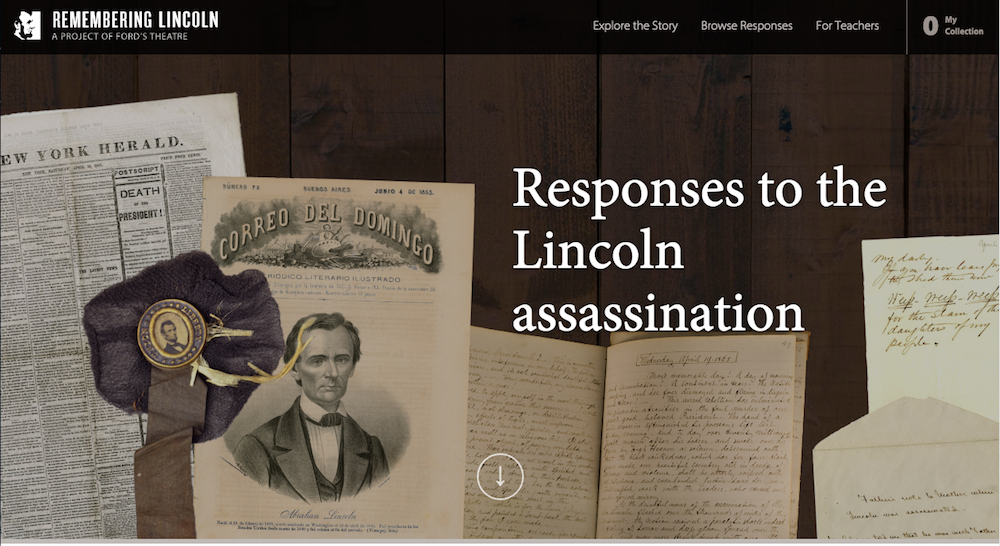This week is the 150th anniversary of the assassination of Abraham Lincoln, and the Internet is glutted with commemorations. Because nothing beats looking at primary sources to get a sense of how a historical event unfolded, here are my recommendations of document-heavy websites to browse.
Ford’s Theatre recently launched a site, Remembering Lincoln, that’s dedicated to collecting responses from the United States and around the world. Readers can use a map to see how people in different parts of the United States grieved (or rejoiced) at the news, look at a timeline of events with links to related documents, or browse the collection by region or type of document.
David McKenzie, Ford’s digital project manager, recommended some sources of particular interest: A diary of a 13-year-old in Boston who sketched her shocked face upon hearing of the event; a vivid illustrated front page of an Italian newspaper, published on May 27 of that year, depicting the assassination with maximum drama; and a general order issued by Union Army Major General Irvin McDowell in San Francisco, prohibiting any further “exultations” over the assassination.

The Martryred President, Emory University.
An Emory University project, The Martyred President, collects the text of sermons given in Northern churches on the Sunday after Lincoln’s death. The President died on a Saturday, and for some residents of more isolated places, the Sunday service would have been the first they had heard of the event. In any case, Sunday church meetings would certainly have been the first occasions in most communities for residents to congregate and mourn as a group. The collection offers full-text versions of the sermons alongside images of their published versions (many were printed in commemorative editions after the fact).
The sermons take the temperature of public opinion at the end of a harrowing week of victory and loss, before sentiments of reconciliation took hold. People were angry, and the prose was purple. From “Discourse the Day After the Reception of the Tidings of the Assassination of President Lincoln,” by Rev. Henry E. Parker, of the South Congregational Church, in Concord, New Hampshire:
… Is it surprising that the hand of the genius of slavery and rebellion should have been equal to an act like this; the pitiless heart, the savage hand, long familiar with lacerating the naked bodies of bondmen and bondwomen, tearing husbands and wives asunder, parents and children;—that black heart which could nourish treason such as this rebellion has brought forth, how natural a nest for such a project of assassination! That matricidal hand lifted against the mother-country of us all—how slight a thing for it to wield the assassin’s weapons!

Raynors’ Historical Collectible Auctions.
Several sites that aren’t focused on the assassination still yield interesting documents related to the event. The Illinois Digital Archives has a Lincoln collection, and a search for “assassination” within that group of records turns up text of many commemorative booklets and addresses. The same keyword used in Brown University Library’s Digital Collections yields bits of printed ephemera: wanted posters, eyewitness accounts, and a creepy photo collage that depicts John Wilkes Booth riding through a forest populated by multiple ghosts of Lincoln. The Lincoln Financial Foundation Collection’s digital archive has a special category for Lincoln-related objects. I searched “memorial” and limited the search to that category, and found this stunning commemorative fan.
And, finally, University of Missouri–Kansas City law professor Douglas O. Linder’s Famous Trials project (a good browse, in its own right) has a page for the trial of the Lincoln assassination conspirators that includes excerpts from transcripts, newspaper accounts, and the text of John Surratt’s 1870 speech describing the conspiracy as he remembered it.
Any good sources of assassination-related documents I’m missing? Email me and let me know; I’ll add them here.
Update, April 15: Adding the State Department’s newly digitized volume of consolation messages that came from abroad after the President’s death. (Mashable has a good rundown of the contents here.) Thanks to Gary Price of Library Journal’s infoDOCKET blog for the tip.
